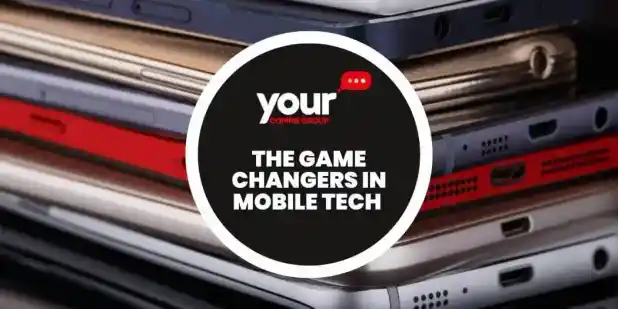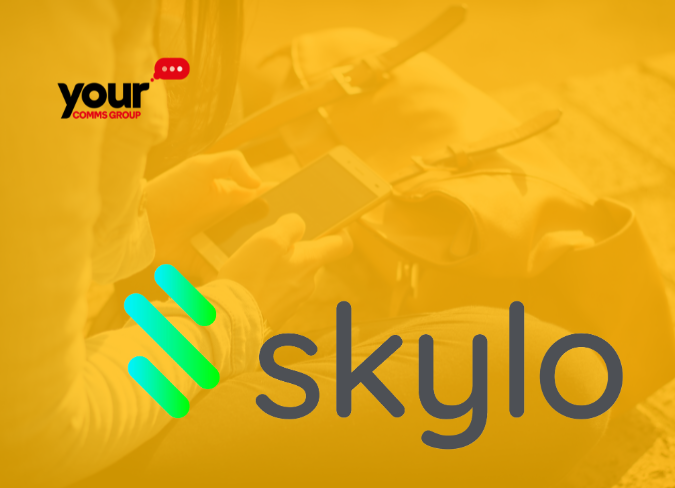The Mobile-First Revolution: How Businesses are Adapting
The mobile-first movement is a trend and pivotal in the global business landscape as technology advances. With smartphones ubiquity and mobile usage...

The mobile tech market has always been a hotbed of innovation, a fertile landscape tailor-made for small, edgy, forward-thinking entrepreneurs to stake their reputations and commercial futures on developing the next big fad or trend. When we talk about the mobile sector, we tend to focus on the big names in manufacturing – Apple and Samsung, for example – and network provision (Vodafone, O2 and EE, among others).

But the big players – no matter how big - also started out as disruptors, and the sector has continued to be shaped by new thinking and the inherent courage of entrepreneurs to do what might be commercially questionable for an existing brand powerhouse. So, who are the potential game changers in the mobile market today, and what can they offer?
The telecom sector, like the rest of the IT market, is changing quickly even as the big players in the market dominate the service delivery needs of both consumers and businesses large and small. But in all of that noise, there’s still lots of room for entrepreneurs to establish themselves. The necessity for connectivity changes with changing business requirements. Private wireless and cellular services are becoming more and more popular among business customers, and these more recent options are beginning to compete with wired communication services. Businesses developing IoT practices are also starting to find cloud-to-device interactions appealing.
The newest telecom firms are entering the market with knowledge of private networking and are utilising 5G and other next-generation technologies for commercial purposes.
Several of these businesses are becoming well-known in specialised industries or in certain specialist scenarios, such as providing connectivity for challenging IoT use cases.
The fact that these telecom start-ups were all formed and launched by IT veterans with strong histories in networking and telecom, who all recognised a market need and scope for innovation in a historically predictable and stable market, is one thing they have in common.
Here are seven telecom startups that solution providers should be aware of because of the new thinking and new ways of working they represent for SMEs and big business alike.
With its platform that enables businesses to build 5G/4G LTE private networks, Celona, which bills itself as a corporate 5G company, closes a significant connectivity market gap.
The business introduced a 5G LAN Device Certification Program in September to streamline the adoption of private LTE/5G networks and assist enterprises in realising cost savings.
Following the hiring of its first channel chief and the completion of its oversubscribed $60 million Series C investment round this past Spring, the two-year-old upstart in the wireless connection market unveiled a new solution provider partner programme in June.

This two-year-old startup describes itself as a 5G systems-on-a-chip firm and is using 5G to bring AI to the network edge. The business is selling its AI-powered chips to businesses and is starting 5G Base Station-on-a-Chip testing with international OEMs and operators.
Former leaders from Broadcom, Intel, and Qualcomm, including EdgeQ's CEO Vinay Ravuri, who left Qualcomm in 2018 as vice president of product management, are in charge of the startup.
Andrew Gregoire, a former MSP owner who is now a wireless expert, saw a need in the market for corporate LTE in 2020 and decided to fill it. This was the beginning of For2Fi.
The firm's high-speed wireless services are perfect for organisations that are difficult to reach and those that require connectivity right away. For2Fi claims that unlike competing products, its wireless options aren't exclusively for backup use cases.
A private 5G wireless mobility firm with a focus on offering shared virtual private networks to the business, Frequencz is still in its early stages. According to the corporation, it is enabling 5G for use by customers in the enterprise market to operate on unlicensed spectrum in different frequency bands. Based in San Francisco and with operations in Sweden, the business says it is bringing cloud economics to wireless to upend the way private networks are created, run, and managed. According to Frequencz, the company's product offers "foundational transformation" in ROI and profitability for private network operators and businesses.
By using its own network of satellites and terrestrial technologies, Mangata Networks makes 5G communication possible. According to the startup, a variety of hybrid satellites in high and medium earth orbits are used to greatly increase the capacity of current networks.
Its mission is to provide redundant links and global coverage to enable continuous connectivity of people, machines, and devices from urban areas to far-flung regions of the globe in order to create an inclusive digital future for everyone.
With the goal of providing connectivity to every item or endpoint, including asset trackers, wearables, sensors, and mobile devices, Skylo has been hard at work constructing a global two-way IoT network using satellite technology.
By linking current, suitable gadgets directly through satellite, the venture, which was created by a collaboration of engineers and scientists from MIT and Stanford, is assisting businesses in seamlessly expanding their coverage. India, Finland, and California all host offices for Skylo.

Verana Networks, a company founded in 2020, is developing a 5G Radio Access Network (RAN) solution for service providers who have licenced millimetre wave (mmWave) spectrum, the region where the newest spectrum is currently accessible.
The company's goal is to make gigabit 5G connection available for less than a third of the price of fibre.
Two of the company's three founders are from CommScope, a provider of network infrastructure, hence the executives have experience building cutting-edge communications networks. Verana has won $43 million in total funding since its start in April last year after securing $28 million in a Series B venture capital funding round.
In conclusion, the media may always be obsessed with what the current big guns are doing. But the truth is that the future is already being created by small enterprises you may not even have heard about yet. Whatever the outcome, the future evolution of mobile tech seems assured.
For all your Telecoms or business updates contact an expert at Your Comms Group today, or to discuss your best options moving forward book a meeting with our team leader Josh here.

The mobile-first movement is a trend and pivotal in the global business landscape as technology advances. With smartphones ubiquity and mobile usage...

We're sure you're familiar with IoT, the latest and greatest in the world of technology - but what is mobile IoT? Mobile IoT is more commonly...

Learn how Your Comms Group saves Premier Tech Water & Environment 40% on their Mobiles! At Premier Tech, we constantly look for smart ways to reduce...